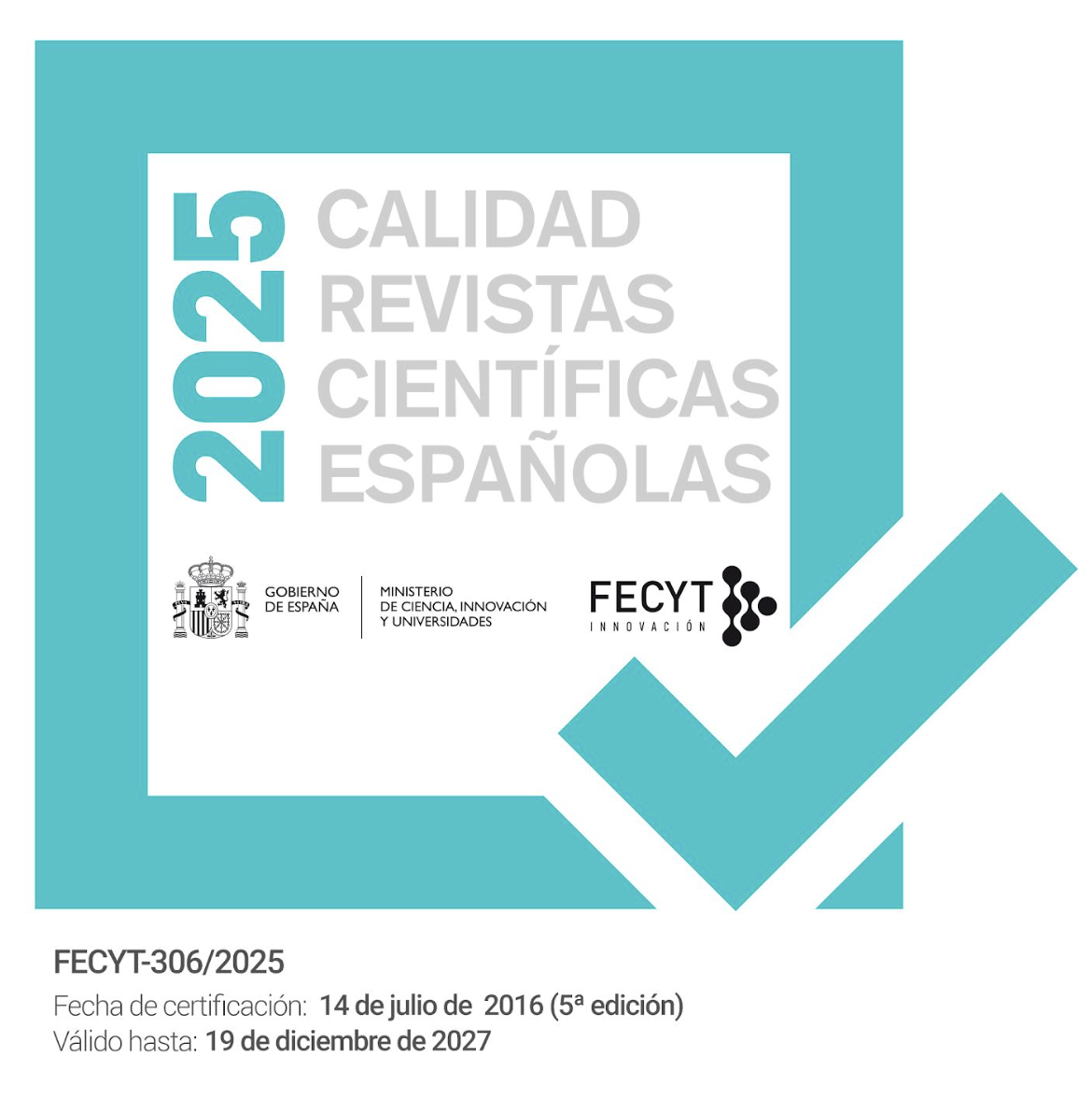Self-help culture and self-work within a context of crisis and the individualisation of social life. The experiences of young adults
DOI:
https://doi.org/10.22325/fes/res.2024.221Keywords:
self-help, individualisation, young adults, self-work, coachingAbstract
The imprint left on late modern society by various processes of social change, such as deinstitutionalisation, individualisation, and neoliberal capitalism, require sociology to pay greater attention to the self-work done by individuals. In this article we focus on young adults who, within a context of crisis and uncertainty, may turn to various resources for guidance, including the tools provided by self-help culture. More specifically, we examine the role of coaching as it relates to this dynamic of personal development and its impact on subjectivity and social relations, considering the type of sovereign individual and the celebrated self it fosters, the practice of introspection on which it is based, as well as the management of "limiting beliefs" and emotions. Finally, we consider some of the critiques directed at self-help culture in general and, more specifically, at the process of coaching. Our analysis is based on the results of a qualitative field study with young adults who have engaged in self-help, particularly coaching.
References
Alonso, L. E. (1994). Sujeto y discurso: el lugar de la entrevista abierta en las prácticas de la sociología cualitativa. En J.M. Delgado y J. Gutiérrez (coord.) Métodos y técnicas cualitativas de investigación en ciencias sociales. (pp. 225-240). Madrid: Síntesis.
Alonso, L. E. (2008). La mirada cualitativa en sociología Madrid: Fundamentos.
Álvarez-Benavides, A. y M.L. Turnbough (2021). Jóvenes, individualización y soportes: sujetos vulnerables en un contexto de transición inacabada. En J. Santiago (ed.), Caras y soportes de la vulnerabilidad (pp. 135-160). Madrid: Catarata.
Ampudia de Haro, F. (2006). Administrar el yo: literatura de autoayuda y gestión del comportamiento y los afectos. Revista Española de Investigaciones Sociológicas, 113, 49-74.
Ampudia de Haro, F. (2007). Las bridas de la conducta. Madrid: CIS.
Ampudia de Haro, F. (2010). El logro del éxito: la dimensión social de la literatura de autoayuda. Revista Española de Sociología, (13), 11-13. https://recyt.fecyt.es/index.php/res/article/view/65163
Bauman, Z. (2001). La sociedad individualizada. Madrid: Cátedra.
Beck, U., y Beck-Gernsheim, E. (2003). La individualización. Barcelona: Paidós.
Béjar, H. (2011). Cultura psicoterapéutica y autoayuda. El código psicológico-positivo. Papers, 96(2), 341-360. https://doi.org/10.5565/rev/papers/v96n2.63
Benedicto, J., Echaves, A., Jurado, T., Ramos, M., y Tejerina, B. (2020). La juventud que sale de la crisis. Revista Española de Sociología, 29(3-Sup2), 131-147. https://doi.org/10.22325/fes/res.2020.78
Benedicto, J., Urteaga, M., y Rocca, D. (2022). Young People in Complex and Unequal Societies. Leiden: Brill.
Berteaux, D. (2005). Los relatos de vida. Barcelona: Bellaterra.
Bourdieu, P. (2000). Cuestiones de sociología. Madrid: Istmo.
Burawoy, M. (2005). Por una sociología pública. Política y Sociedad, 42(2), 197-225.
Cabanas, E., y Illouz, E. (2019). Happycracia. Barcelona: Paidós.
Carvalho, A. (2021). Rethinking the politics of meditation: Practice, affect and ontology. The Sociological Review, 69(6), 1260-1276. https://doi.org/10.1177/00380261211029457
Castel, R. (2004). La inseguridad social. Buenos Aires: Manantial.
Castrillo Bustamante, A. y Vicente Olmo, A. (2021). El futuro es un abismo: jóvenes y proyectos biográficos en tiempos de crisis. En J. Santiago (Ed.), Caras y soportes de la vulnerabilidad (pp. 109-133). Madrid: Catarata.
Dubet, F. (2006). El declive de la institución. Barcelona: Gedisa.
Dubet, F. (2013). El trabajo de las sociedades. Buenos Aires: Amorrortu.
Dubet, F. (2014). ¿Para qué sirve realmente un sociólogo? Buenos Aires: Siglo XXI.
Echaves García, A. (2017). Emancipación residencial y sistema de provisión de vivienda: la heterogeneidad autonómica del modelo español. Revista Española de Investigaciones Sociológicas, 159, 51-72. https://doi.org/10.5477/cis/reis.159.51
Ehrenberg, A. (2000). La fatiga de ser uno mismo. Buenos Aires: Nueva Visión.
Fridman, D. (2019). El sueño de vivir sin trabajar. Buenos Aires: Siglo XXI.
Furedi, F. (2004). Therapy Culture. London: Routledge.
Gadamer, H. G. (1977). Verdad y método. Salamanca: Sígueme.
Gaviria, S. (2007). Juventud y familia en Francia y en España. Madrid: CIS.
Giddens, A. (1995). Modernidad e identidad del yo. Barcelona: Península.
Giddens, A. (1998). La transformación de la intimidad. Madrid: Cátedra.
Han, B-C. (2017). La sociedad del cansancio. Barcelona: Herder.
Hochschild, A. R. (1979). Emotion Work, Feeling Rules, and Social Structure, American Journal of Sociology, 85(3), 551-575. https://doi.org/10.1086/227049
Hochschild, A. R. (2003). The Commercialization of Intimate Life. Berkeley: University of California Press.
Ibáñez, J. (1979). Más allá de la sociología. Madrid: Siglo XXI.
Illouz, E. (2010). La salvación del alma moderna. Madrid: Katz.
Kross, E. (2021). Chatter. The Voice in our Head, Why It Matters, and How to Harness It. New York: Crown.
Lahire, B. (2005). De la teoría del habitus a una sociología psicológica. En B. Lahire (ed.), El trabajo sociológico de Pierre Bourdieu (pp. 143-179). Buenos Aires: Siglo XXI.
Lahire, B. (2006). Para qué sirve la sociología. Buenos Aires: Siglo XXI.
Mäkinen, K. (2016). The individualization of class: a case of working life coaching. The Sociological Review, 62, 821-842. https://doi.org/10.1111/1467-954X.12209
Martín Criado, E. (1998). Producir la juventud. Madrid: Istmo.
Martuccelli. D. (2007). Cambio de rumbo. Santiago: LOM.
Martuccelli, D. y Santiago, J. (2017). El desafío sociológico hoy. Madrid: CIS.
Mørch S, Pultz, S. y Stroebaek, P. (2018). Strategic self-management: the new youth challenge. Journal of Youth Studies, 21(4), 422-438. https://doi.org/10.1080/13676261.2017.1385747
Pagis, M. (2016). Fashioning Futures: Life Coaching and the Self-Made Identity Paradox. Sociological Forum, 31(4), 1083-1103. https://doi.org/10.1111/socf.12297
Peck, J. (2008). The Age of Oprah. Boulder, CO: Paradigm Publishers.
Ramos Torre, R. (2020). Sobre las incertidumbres en las ciencias sociales. En R. Ramos Torre y F. García Selgas (Eds.), Incertidumbres en las sociedades contemporáneas (pp. 15-46). Madrid: CIS.
Rimke, H. M. (2000). Governing citizens through self-help literature. Cultural Studies, 14(1), 61-78. https://doi.org/10.1080/095023800334986
Rojas Estapé, M. (2018). Cómo hacer que te pasen cosas buenas. Espasa.
Rose, N. (1999). Governing the Soul. London: Free Association Books.
Roudinesco, E. (2023). El yo soberano. Madrid: Debate.
Ruiz Castro, R. (2010). El discurso de autoayuda como tecnología del yo. Universidad de Almería.
Santamaría, E. (2012). Trayectorias laborales en los márgenes del empleo: Políticas, subjetividades y experiencias de jóvenes en la precariedad laboral. Vitoria-Gasteiz: Servicio Central de Publicaciones del Gobierno Vasco.
Santiago, J. (Ed.) (2021). Caras y soportes de la vulnerabilidad. Madrid: Los Libros de la Catarata.
Sartre, J-P. (1952). Saint Genet, comédien et martyr. Paris: Gallimard.
Sauerborn, E., Sökefeld, N., & Neckel, S. (2022). Paradoxes of mindfulness: The specious promises of a contemporary practice. The Sociological Review, 70(5), 1044-1061. https://doi.org/10.1177/00380261221108570
Serrano Pascual, A. y Fernández Rodríguez, C. J. (2018). De la metáfora del mercado a la sinécdoque del emprendedor: la reconfiguración política del modelo referencial de trabajador. Cuadernos de Relaciones Laborales, 36(2), 207-224. https://doi.org/10.5209/CRLA.60694
Subirana, M. (2016). La libertad de ser uno mismo. El País Semanal. https://elpais.com/elpais/2016/03/17/eps/1458213301_511715.html
Tejerina, B. (2020). Experiencias y metáforas sobre la precariedad y la hiperactividad de la juventud en un tiempo de espera. Revista Española de Sociología 29 (3-Sup2), 95-112. https://doi.org/10.22325/fes/res.2020.76
Turnbough, M. L. (2024). Grappling with Chance in a Changing World: Towards a Typology and Understanding of Fortune. The Sociological Quarterly, 65(1), 85-104. https://doi.org/10.1080/00380253.2023.2252897
Valles, M. (1999). Técnicas cualitativas de investigación social. Madrid: Síntesis.
Western, S. (2012). Coaching and Mentoring. London: SAGE.
Published
How to Cite
Issue
Section
License
Copyright (c) 2024 Matthew L. Turnbough, Jose Santiago

This work is licensed under a Creative Commons Attribution-NonCommercial 4.0 International License.
• The transfer of the copyright of the article to Revista Española de Sociología.
• The assignment to the Revista Española de Sociología of the rights of commercial exploitation of the article to third parties both in the offset and digital formats, as well as to the search engines and platforms that may serve as intermediaries for the sale or knowledge of the article.




